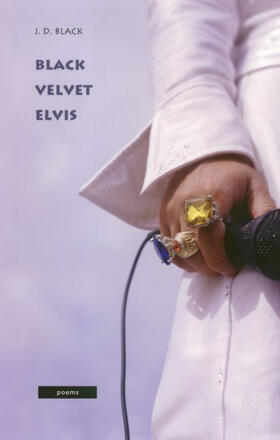
Black Velvet Elvis
La description
The King himself puts in a cameo appearance at a rural Quebec Gas-Bar de la Nuit where the glowing ends of several dozen cigarettes counterpoint an urgent bass line to the syncopated doo-wap of several tens of thousands of fireflies.
Reviews
`The poems in Black Velvet Elvis surprise twice. First by their distinctiveness, then by how they leave you unprepared for what comes next. To go from a gory workplace accident (`Incident on the Plant Floor`) to a sly satire on fashionistas (`Labels`) is to experience the invigorating diversity of J. D. Black`s first book. `
- Carmine Starnino
`The flashy cover is a delight to the eye, as a well-known iconic hand graces it. Elvis, the older one, not the young one, is an equivalent symbol of Black and his later development into prose. We may be seeing the old Elvis on the cover, but the hand grasps the microphone firmly; like the older Elvis, Black may be late to arrive, but he seems confident in all that he has learned along the way and what he has brought to the table. `
- Kindah Mardam Bey